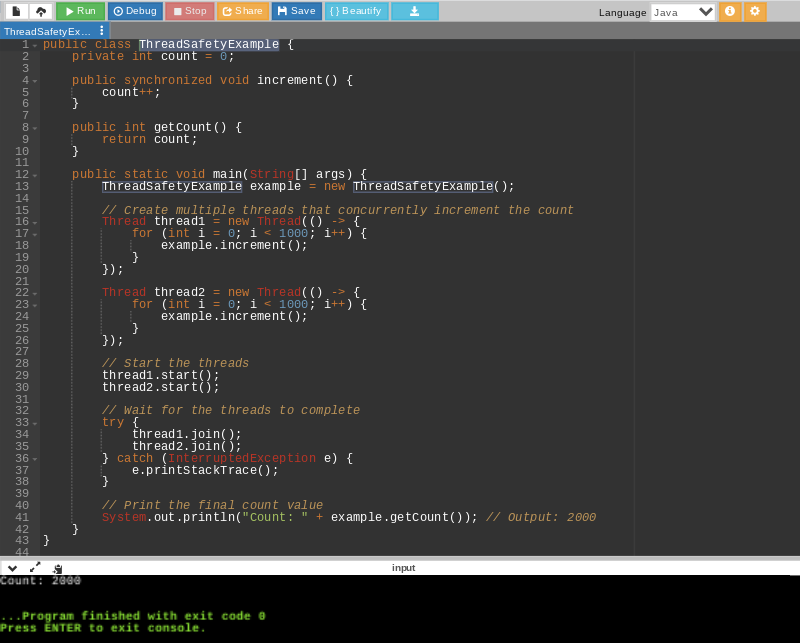Why Are Strings Immutable in Java? Checking Out the Style Decisions
Why Are Strings Immutable in Java? Checking Out the Style Decisions
Blog Article
What Is Immutable Strings and How It Works
In the realm of shows, recognizing the idea of unalterable strings is paramount for developing robust and safe and secure applications. Immutable strings refer to strings that can not be modified after they are created, ensuring information stability and predictability within the code.
The Fundamentals of Immutable Strings
Unalterable strings, as an essential concept in shows, are personality sequences that can not be changed once they are created. This indicates that when a string is assigned a worth, that value can not be changed. In languages like Python and Java, strings are immutable items, causing various effects in regards to memory administration and data stability.
Among the crucial advantages of unalterable strings is that they give a feeling of protection in data manipulation. Given that the web content of an immutable string can not be changed, it guarantees that the initial information stays undamaged, decreasing the threat of unintended modifications throughout program implementation (Why are strings immutable in Java?). This property also streamlines debugging procedures, as programmers can rely on that as soon as a string is defined, its value will certainly not be unintentionally changed
Furthermore, immutable strings promote effective memory use. When a new string is developed based on an existing one, instead of modifying the original string, the new worth is saved independently. This strategy boosts performance by lowering memory fragmentation and simplifying memory allowance procedures. On the whole, understanding the fundamentals of unalterable strings is crucial for mastering programming ideas and optimizing code efficiency.
Benefits of Unalterable Strings
Structure upon the safety and security and efficiency benefits of immutable strings, their advantages encompass boosting code integrity and simplifying concurrent programming tasks. By being immutable, strings can not be customized after creation, which removes the danger of unplanned modifications in the data they save. This inherent immutability makes certain that when a string is created, its worth continues to be consistent throughout the program's implementation, decreasing the possibilities of bugs brought on by unforeseen changes.
In addition, unalterable strings add to code reliability by making it much easier to reason about the state of a program. Given that strings can not be altered, designers can trust that a string will certainly constantly hold the exact same value, streamlining debugging and upkeep efforts. This predictability results in extra stable and dependable codebases.

Implementation in Programs Languages
Within numerous programming languages, the consolidation of unalterable strings is an essential aspect that impacts exactly how data is handled and adjusted within code frameworks. The implementation of unalterable strings differs across various programs languages, with each language providing its very own devices to support this concept.

In comparison, languages like C and C++ do not have built-in assistance for unalterable strings. Designers in these languages have to by hand apply immutability by applying guidelines within their code to avoid straight modifications to string objects.
Ideal Practices for Functioning With Unalterable Strings
When dealing with unalterable strings in programs languages like Java and Python, sticking to finest practices makes sure effective and secure data control. Among the vital best methods is to make use of StringBuilder or StringBuffer rather than directly manipulating strings, particularly when taking care of extensive concatenation operations. These classes give mutable options for string adjustment, aiding to stay clear of unnecessary memory appropriations and improving efficiency.
An additional ideal technique is to use string interpolation or format functions supplied by the language rather than hand-operated concatenation. This not only boosts readability but also aids in protecting against usual mistakes such as unintended string adjustments. Furthermore, when collaborating with delicate information such as passwords or API keys, it is vital to stay clear of saving them as plain message in unalterable strings. Utilizing protected storage space systems like char selections or specialized collections for managing sensitive details helps reduce safety threats related to unalterable strings.
Real-world Applications and Examples
Exploring functional executions of unalterable strings in various sectors discloses their substantial impact on information stability and system dependability. In the medical care market, immutable strings play a vital role in making certain the security and confidentiality of person data. By protecting against unapproved adjustments to sensitive details such as clinical documents and prescriptions, immutable strings assist keep conformity with stringent privacy regulations like HIPAA.
Banks additionally gain from the unalterable nature of strings to enhance the protection of customer data and transaction records. Immutable strings help stop fraudulence and unauthorized modifications to monetary info, providing a durable defense versus cyber hazards and guaranteeing the trust and confidence of customers.

Conclusion
In conclusion, unalterable strings are repaired and stable series of characters that use advantages such as thread safety and enhanced efficiency in programs. They are executed in different programming languages to ensure information honesty and safety and security. Best practices for collaborating with unalterable strings consist of staying clear of straight modifications and making use of approaches that return brand-new string objects. Real-world applications of immutable strings consist of data encryption, caching, and string adjustment tasks.
Unalterable strings refer to strings that can not be modified after they are created, making sure information honesty and predictability within the code. When a new string is produced based on an existing one, instead than changing the original string, the brand-new value is kept individually.In languages like Java and Python, strings are unalterable by default, implying that once a string item is created, its worth can not be changed - Why are strings immutable in Java?. Ideal methods for working with unalterable strings include preventing straight modifications and using techniques that return brand-new string objects. Real-world applications of unalterable strings consist of information encryption, caching, and string adjustment jobs
Report this page